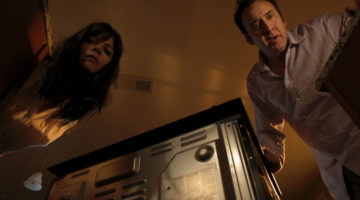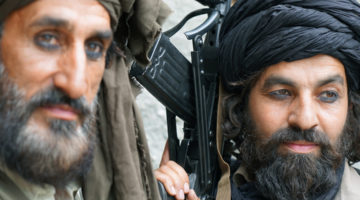TIFF 2014 Review: Good Kill
An explosion occurs from an eagle-eye view, erupting instantly in a cloud of dust, and demolishing whatever building, killing any men, women, children in the area. It occurs without sound, and it’s chilling each and every time this happens.
They are ‘good kills,’ and this is the morally ambiguous and disturbing view of modern day war. Written and directed by Andrew Niccol, Good Kill places the viewer in the seat next to a former air force pilot and current drone operator, a man tasked fighting a war from the confines of a claustrophobic trailer.
Ethan Hawke is Major Tom Egan, second in command to Bruce Greenwood’s Lt. Colonel Johns, an accomplished soldier finding difficultly accepting the new frame of war. It’s Afghanistan inside these metal confines, but when he exists, Egan steps foot on a base in Nevada, not far from his suburban home, wife, and child.
The disturbing and newsworthy story unfolds with both familiar themes and novel questions. Egan’s past is compounded by a present that finds his life not in danger despite fighting. He ostensibly is a soldier taking orders and killing people from an office. He can’t explain it to his family.
Life becomes more complicated when the CIA takes over command, issuing massive preemptive strikes. We watch and wait as bombs are deployed and those unknown, possibly innocent, are silently destroyed.
Based on actual events from 2010, Good Kill is a gripping watch. The dramatization infuses some archetypes – Hawke’s trouble soldier, Greenwood’s quick-mouthed leader, an out-spoken young female officer – with current dilemmas yet unexplored on screen.
Niccol’s direction, including overhead shots of Egan navigating empty desert roads and his artificial backyard, is superb, supplying tension and thrills to that which is often simply static. Good Kill is a powerful wartime drama that succeeds in asking myriad questions: answers are less common.
[star v=4]






